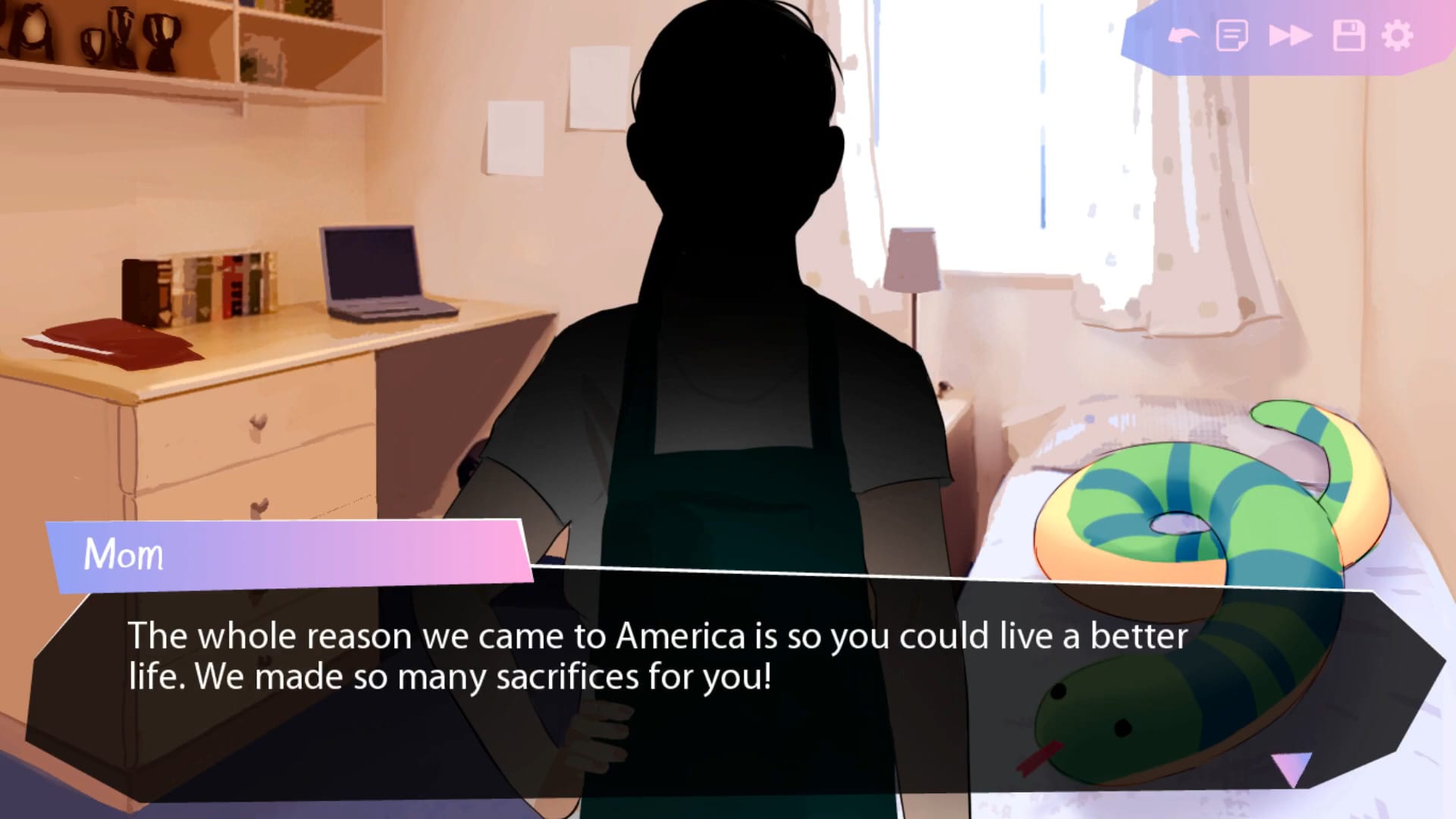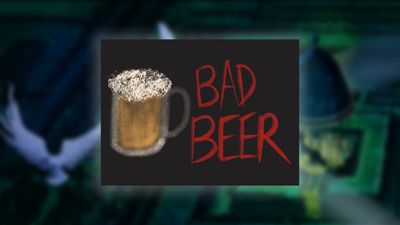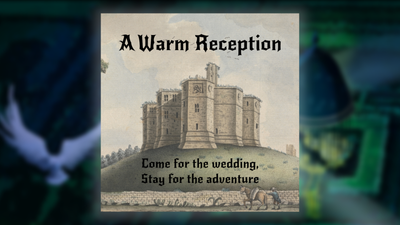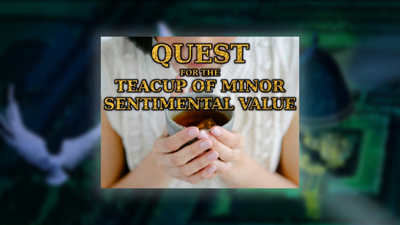When I look at screenshots and trailers of AAA (triple-A) games, I can't help but feel the distance between myself and their content. It's not just the 3rd-person angles or the fantastical settings that remind me that I've believed in a carefully crafted fantasy for a short period of time. It's also the baggage that comes with the label "AAA".
For one, we're all aware that AAA games prioritize reigning in the big bucks at the end of the day. To reach whatever their latest fiscal goals are they tend to create big dramatic experiences designed to keep you playing for long periods of time, justifying a "need" for gamers to pour hours of their life away, which they use as a reason to create lengthier and lengthier experiences. And of course, if they don't already charge a hefty price tag they'll entice you to buy things such as in-game cosmetics, power-ups, and currency, all in the name of milking you like a cow. This leads me to my biggest issue with AAA games:
They're focused on telling stories and sharing experiences that appeal to whoever will pay for them. And with this focus on money comes a focus on those who are more likely to have it. Everyone else can go jump off a duck for all they care.
This issue has been growing over the years and I acknowledge that a lot of talented folks in the indie scene have tried to address it. That said I'd like to highlight a particular style of games, along with some examples, that's experienced a renaissance thanks to an under-appreciated hobbyist scene: Text games. They're often made under the "Interactive Fiction" (IF) label and prioritize the use of text in creating interactive experiences. They also manage to correct what AAA games do so wrong.

Let's start with one of the biggest differences between the hobbyist scene and the AAA machine: Hobbyist text games tend to be considerate of your time. For example, the Neo-Twiny Jam was held again in 2024 and invites authors to make games in 500 words of content or less, a restriction games publishers would scoff at. Yet a common lamentation amongst gamers is that they just don't have the time anymore to sit down and beat a 20-hour game, never mind any bonus content or achievements. It's a good thing, though, that we have text games that can deliver entire experiences in 5 minutes, sometimes even seconds.

Queers in love at the end of the world is a classic where it's the end-times and you have exactly 10 seconds left to spend with your beloved before you're both sent to oblivion. Despite its micro-scale length, it has a lot of replay value and makes you reconsider just how much is possible in such a short amount of time. After playing many of these and reading the authors' creative processes while working on them, I'd say text games' short run-time is often not an intentional effort so much as a by-product of a limited budget and schedule. Regardless, many of them are short and sweet experiences that don't want to intrude upon your life too much.

Needless to say, hobbyist text games are made from passion first, with money often being an afterthought. There's no clearer example of text game creators in it for the love of it than parser authors. Many of these folks grew up during a time when companies such as Infocom and Magnetic Scrolls produced text adventures with command line interfaces and sold them on the mass market. But as the years have gone on they've advanced the format* into a diversity of approaches. Galatea, for example, is about talking to an NPC with a complex past who gives rich responses. Toby's Nose has you play as a dog with the ability to explore the smallest details coming from various scents you sniff on suspects. No AAA publisher, at the time of this writing and with sound reason and mind, would attempt to sell games like these outside of their niche audience. And neither author of the aforementioned games has reported buying a yacht thanks to sales of their game. Both titles are free to play because they were made first and foremost as forms of self-expression and joy to share with the community.
* Parser games can be hard to get into, see this intro on getting started.

Finally, hobbyist text games' greatest strength is their use as a medium to tell personal stories from marginalized perspectives. Emily Short, Galatea's author and one of the most prominent voices in the IF community, once reminded us that through text we can understand the intricacy of how those different from us see the world. Games such as Butterfly Soup aren't just cute visual novels with an adorable cast, they're also an intimate look into the struggles of queer Asian teens growing up in a Californian ethnic enclave. As someone who also grew up in a similar community as Diya and her friends, I can't even begin to explain what it felt like to actually identify with fictional characters for the first time.

Stories like ours still struggle to be told and AAA games as they are now would be unequipped to do them justice, not to mention handling sensitive topics with due reverence. After the janazah is an entry in the Neo-Twiny Jam I brought up earlier that depicts a personal look at a grieving Muslim woman who must attend her family member's funeral. I grew up in a Christian household and learning about another religion's prayer and funeral customs was a refreshing lesson because I got to experience a moment in the life of someone different than me. I may not be a Muslim but the pain of losing someone close to me doesn't need me to be one.

A game like After the Janazah is a heartfelt flower that could only bloom in a non-AAA context. And don't think these kinds of games are a new trend. Since as early as the 2010s, the personal games movement has sprouted works whose stories are important to the author most of all, not to mention the forgotten hobbyist groups such as Rec.*.int-fiction who came and went decades ago. Coinciding with the development of free and accessible tools for making text games such as Twine and Ren'Py, personal text games have become a way for the roses who grow in concrete to share their petals with us.
I hope the strengths of hobbyist text games I've described here inspire someone to take a chance and try one themselves. Just because these games are smaller and less flashy doesn't mean they're not enjoyable or educational. There are thousands of folks online who are playing these small, personal passion projects and maybe even making their own. Text games must be doing something right, otherwise they would have died out a long time ago.
Justin's many things: Memer, designer, developer, game maker, Tarot reader, writer, and more. Now he's a keyboard monkey for Final Arc (don't tell them he said that). Website: heyjustinkim.com






